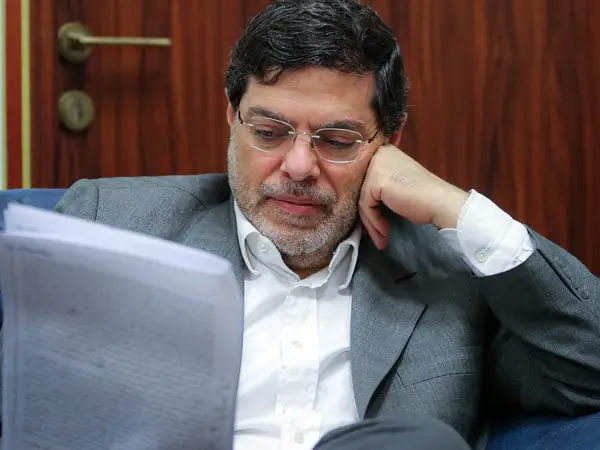As Europe Tuesday warily welcomed Tehran’s latest input to nuclear talks, an Iran spokesman said Washington should “pay a price” if it again left an agreement.
Mohammad Marandi, who has been advisor-cum-spokesman for Iranian negotiators, spoke to both al-Jazeera and CNN television channels. Fars News, affiliated to Iran’s Revolutionary Guards, topped its site with Marandi’s words to Jazeera that “economic guarantees means protecting foreign companies and supporting them against American sanctions.”
Iran International had reported earlier Tuesday that Tehran, in a written response late Monday to European Union proposals made August 8, had said its search for economic guarantees had not been satisfied. The August 8 text, circulated by EU mediator Enrique Mora to bridge differences between the United States and Iran, had reportedly proposed a one-year respite from US sanctions for third parties trading with Iran should Washington again leave the Iran 2015 nuclear agreement, the JCPOA (Joint Comprehensive Plan of Action), as it did in 2018 under President Donald Trump.
EU spokesperson Nabila Massrali confirmed Tuesday that the EU had passed on the Iranian response to the August 8 text. “We are studying, and consulting with the other JCPOA participants and the US on the way ahead,” she said.
Bloomberg Tuesday cited “an official familiar with the diplomatic efforts” that the EU saw the Iranian response as “constructive.”
‘That’s what we want’
In a briefing for journalists Tuesday, US State Department Spokesman Ned Price defended the Biden administration’s efforts to restore the JCPOA as an agreement restricting Iran’s nuclear program under international monitoring. “We don’t have that now – that’s what we want,” Price said. “We would prefer to have those permanent, verifiable limits…the deal that has been on the table since March is better than the status quo.”
Price refused to be drawn over Iran’s response to the EU text. “When we have more to say we’ll share that,” he said. “These are not simple issues that can be entertained, or tabled without the consultations we’ve had with the EU…where the parties have had an opportunity to ask questions of the coordinator, to seek additional information…these are complex issues.”
The semi-official Iranian news agency ISNA reported Tuesday that Iran expected a US response within two days, while the English-language Tehran Times called the Iranian input of Monday “a complete package” that had been agreed by an extraordinary meeting of the Supreme National Security Council chaired by President Ebrahim Raisi Monday afternoon.
The Tehran Times also reported that Iran had not included its previous demand that the International Atomic Energy Agency close enquiries into unexplained uranium traces found in sites linked to nuclear work before 2003.
Three differences – including nuclear guarantees
In remarks to journalists Monday, Foreign Minister Hossein Amir-Abdollahian said messages were being exchanged with the US – presumably via the EU – on three issues. The foreign minister said Washington had expressed “verbal flexibility” on two, something Iran needed confirmed in writing, and that flexibility was still needed on “the third issue and guarantees.”
In a tweet Monday, Marandi also referred to three issues. In a separate tweet, he suggested Iran needed a route to rapidly restoring its nuclear program should the US again leave the JCPOA, so confirming that ‘guarantees’ sought by Tehran were not solely over sanctions.
One of the issues dogging 18-month talks has been agreeing exactly how the Iranian nuclear program, expanded since 2019, should be returned to JCPOA limits. Tehran has reportedly argued that it should store rather than scrap advanced centrifuges, which enrich uranium more efficiently and quickly. Barred under the agreement and have been gradually introduced by Iran since 2011.
